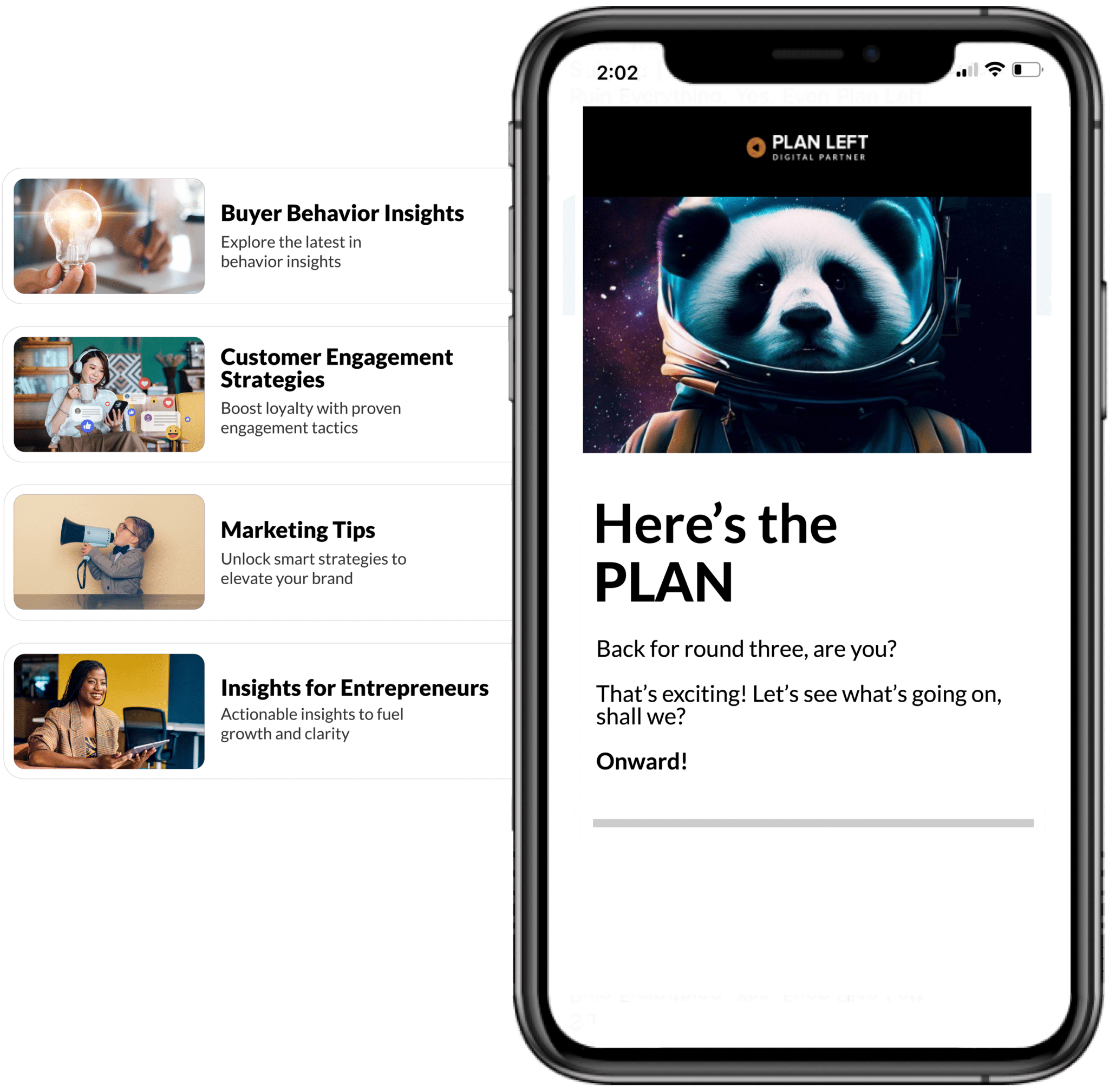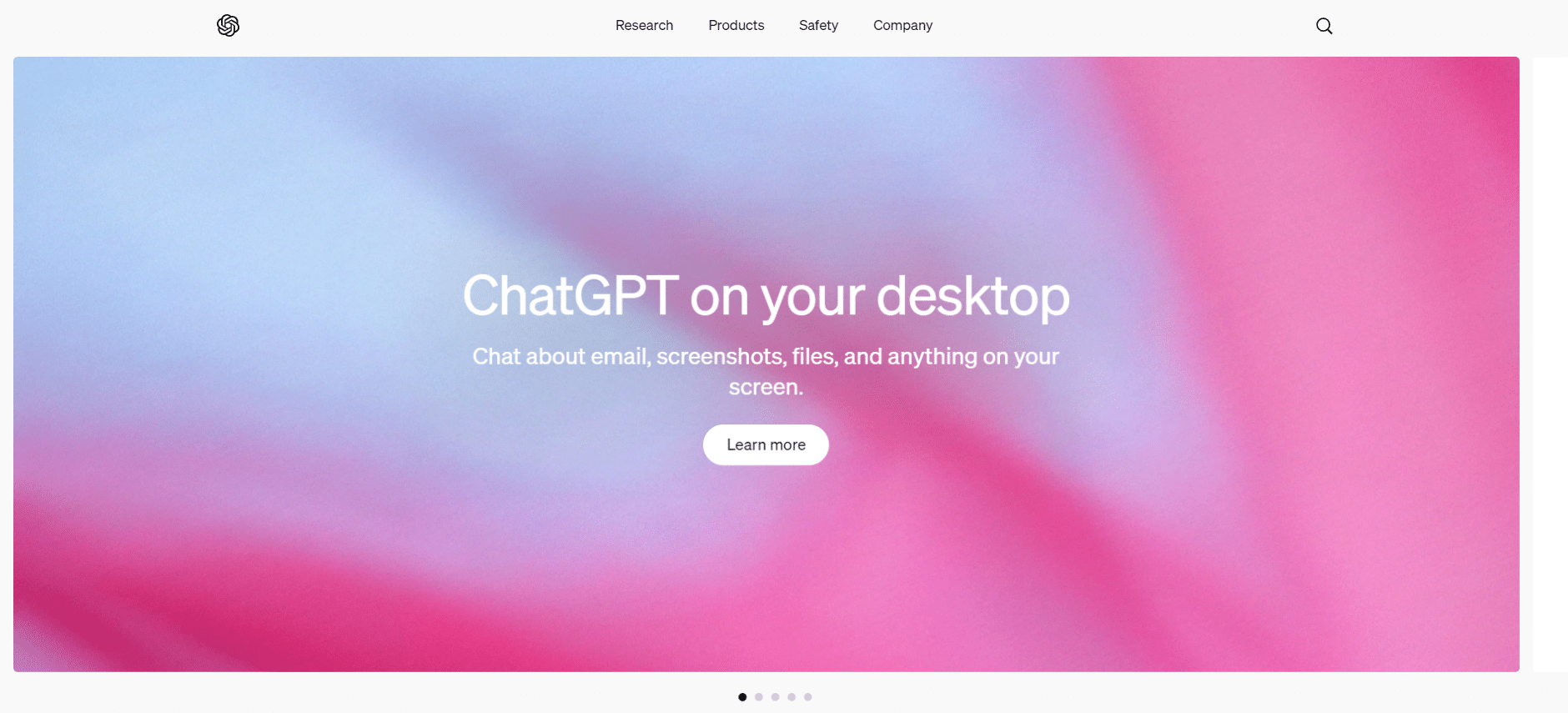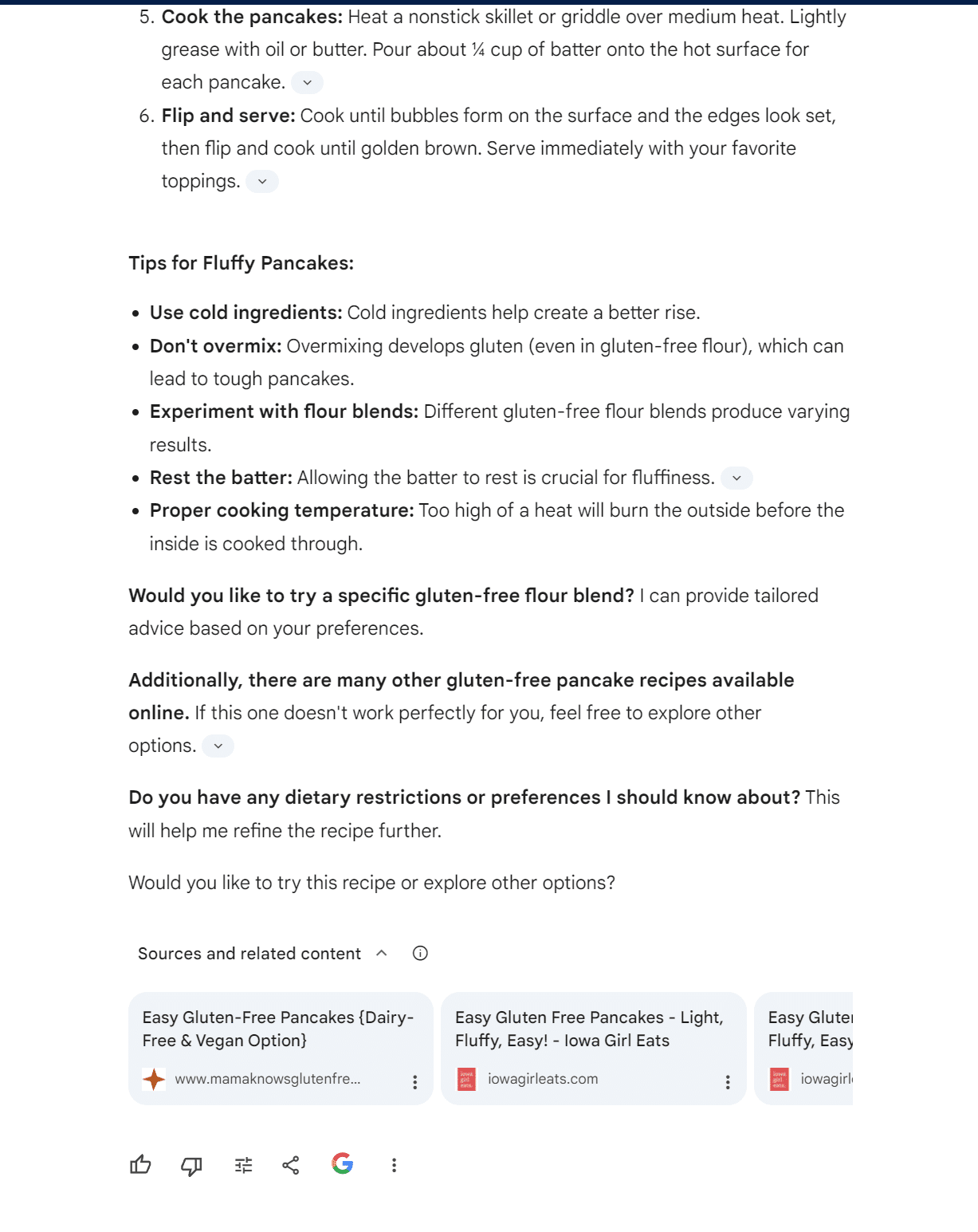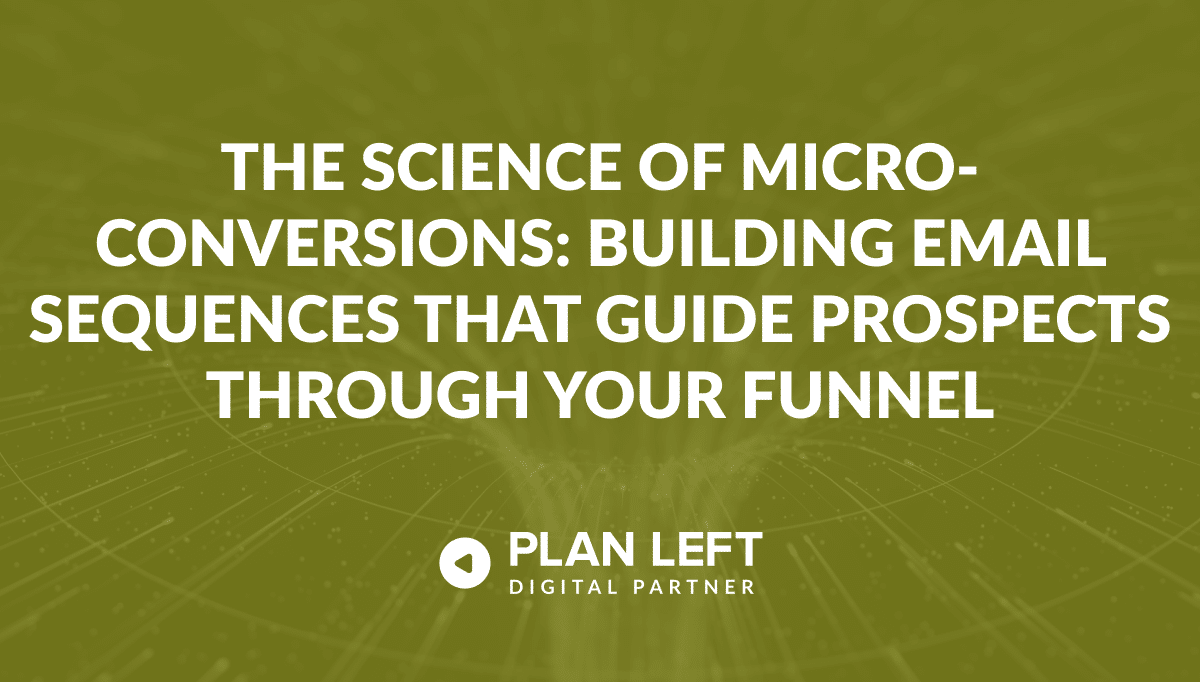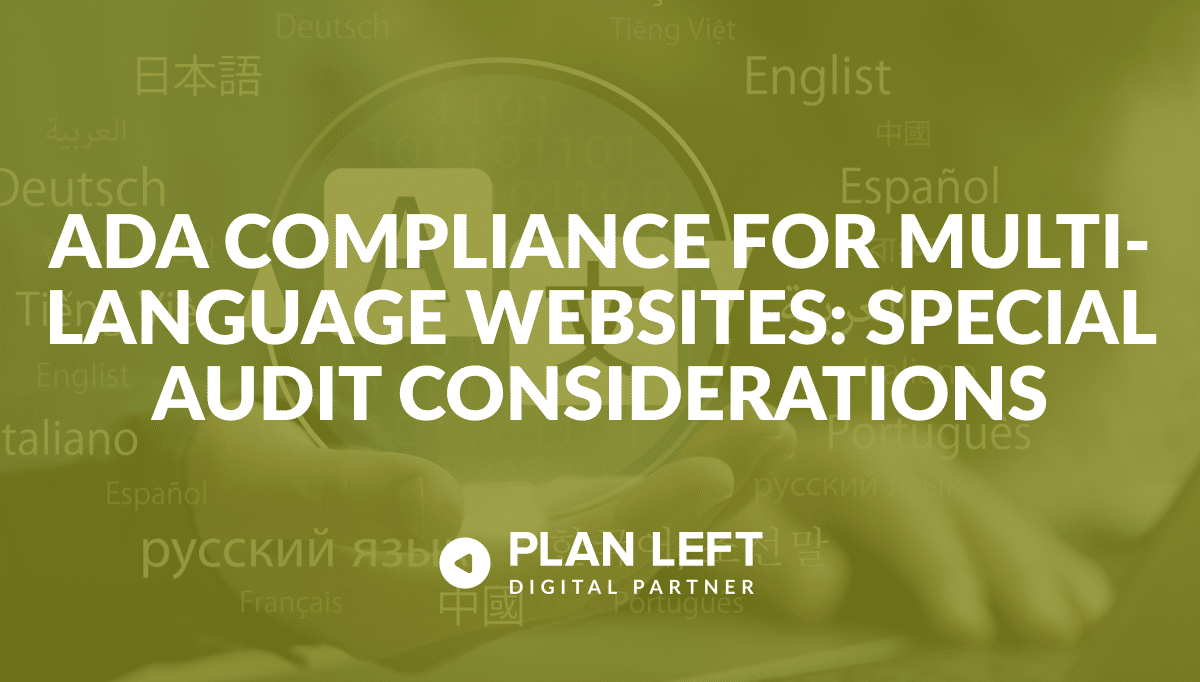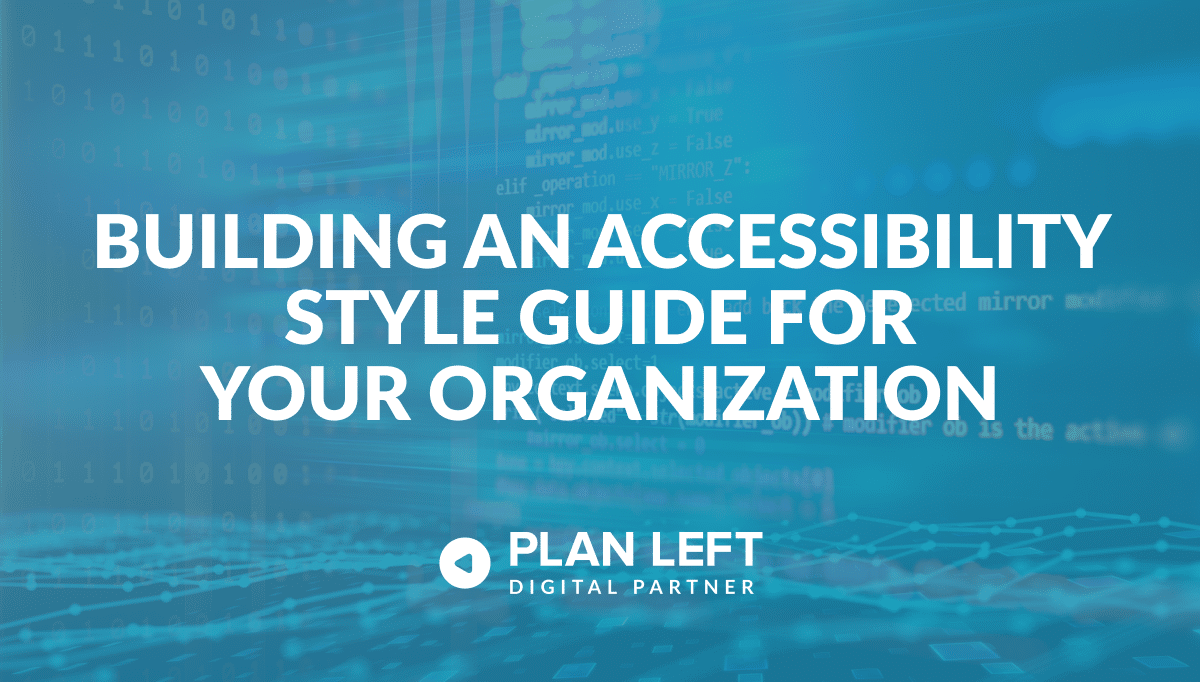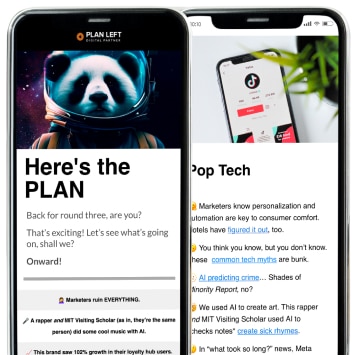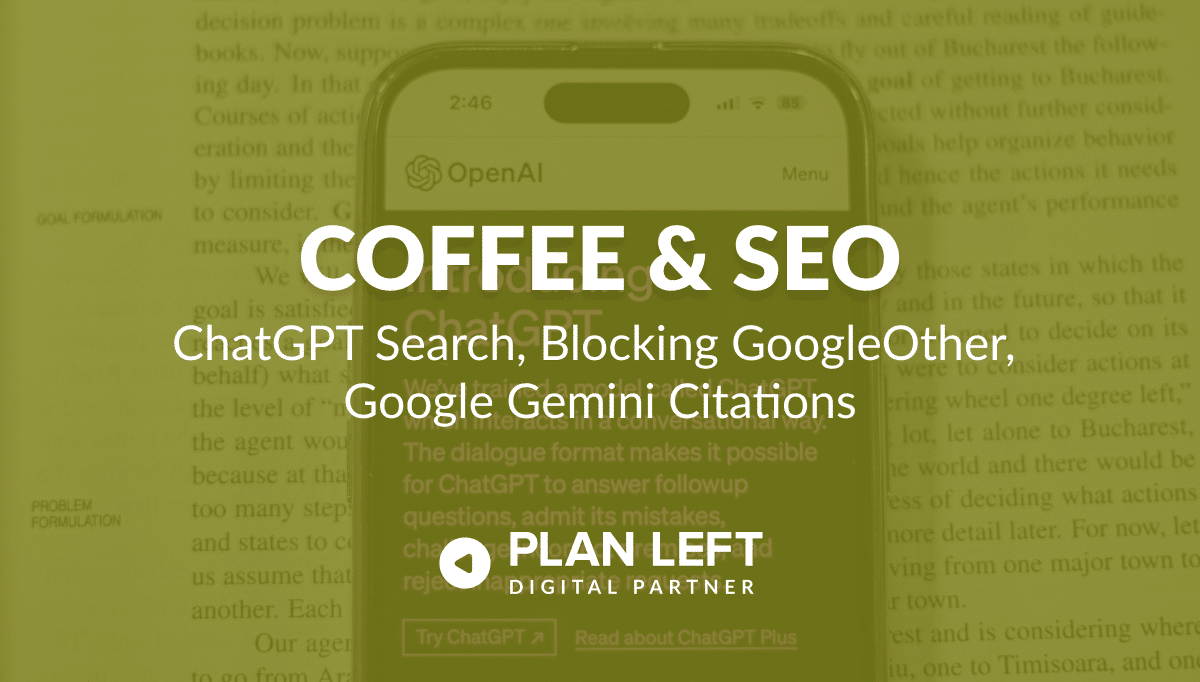
AI-powered search engines like ChatGPT Search and Perplexity.ai are changing how we search the internet, while Google cautions website owners and operators to think twice before blocking GoogleOther bot. American Customer Satisfaction Index (ACSI) study is out and TikTok takes center stage in user satisfaction, and Google’s Gemini adds citation links back into their responses. It’s a short week of SEO updates and digital marketing news but powerful nonetheless—let’s get to it.
ChatGPT Search Launches – What Happens To SEO Now?
AI-powered search engines like ChatGPT and Perplexity.ai are set to change online search by providing more intuitive, conversational, and direct answers to users’ questions. Although this shift provides a positive user experience, it calls into question traditional digital marketing practices.
Traditionally, search engines like Google, Bing, and Yahoo! have relied on things like keyword matching to provide results. However, AI-powered search introduces a paradigm shift:
- Conversational Queries: Users can ask questions in natural language, just as they would to a human.
- Direct Answers: Instead of a list of links, AI search engines provide concise, relevant answers synthesized from multiple sources.
- Context Understanding: These platforms can interpret the intent behind queries, offering more accurate and personalized results.
- Keyword Optimization: With AI understanding context, traditional keyword optimization becomes obsolete.
- Content Strategy: The focus shifts from attracting clicks to providing comprehensive, authoritative information.
Source: Plan Left Screenshot
Opportunities and New Strategies
While these changes present challenges for business owners and digital marketers, AI search also opens new doors. With generative engine optimization (GEO), we are not without options for increasing traffic to our websites, increasing conversions, and optimizing content for target buyers.
Here are a few starting points:
- Intent Optimization: Focus on addressing user intent rather than chasing keywords. This practice ensures that traffic to your website is meant to be there and not accidentally landing on your website, increasing organic traffic but decreasing conversation rates and CTR.
- Rich, Informative Content: Creating in-depth, authoritative content becomes more crucial than ever. Create the personas so you and your team know your target buyer(s) and who exactly you’re speaking to. Create the content with them in mind. Target their pain points, wants, needs, etc., and answer the questions they will be specifically looking for.
- Voice Search Readiness: AI search aligns closely with voice search, which makes optimizing for conversational language essential. Write your content how you would talk to the person you’re writing for and if you’re using AI tools to create content, don’t forget to read through the output and make edits for a more conversational, human voice.
Blocking GoogleOther Bot Could Affect A Range of Things With Google
GoogleOther is a crawler used by various Google product teams to fetch publicly accessible content from sites and is typically used for research and development purposes. GoogleOther includes specialized versions like GoogleOther-Image and GoogleOther-Video, optimized for crawling image and video URLs, respectively.
Blocking the GoogleOther bot can have both positive and negative consequences for your website.
Positive Effects of Allowing GoogleOther
Allowing GoogleOther to crawl your site might make it part of research for new Google features or products. This could lead to early testing of new features that might benefit your site. Plus, GoogleOther typically doesn’t crawl frequently enough to cause a noticeable impact on server resources.
Negative Effects of Allowing GoogleOther
Letting GoogleOther crawl your site can result in Google using your data for unspecified internal purposes, which might not align with your site’s goals. Additionally, if GoogleOther is used to test spam-fighting techniques, it might not be beneficial if your site has vulnerabilities like cross-site scripting (XSS) or SQL injection that could be exploited by GoogleOther crawling your website, setting you up to be targeted by malicious bots or unauthorized access.
Should You Block GoogleOther Bot?
Different circumstances will require different outcomes. Weigh the pros and cons and determine if it benefits your website or will harm it. Here are some pros and cons to consider:
Pros
- Control Over Site Data: Blocking GoogleOther gives you more control over how your site’s data is used by Google for internal research and development.
- Avoid Unwanted Testing: Prevents your site from being part of spam-fighting or other internal tests that might not be relevant to your site’s goals.
Cons
- Missed Opportunities: Blocking GoogleOther might exclude your site from beneficial research and development projects that could enhance your site’s visibility or functionality in future Google products.
- No Impact on AI Training Concerns: Blocking GoogleOther will not prevent your content from being used in AI Overviews, as these rely on data collected by Googlebot, not GoogleOther.
Options Instead of Blocking GoogleOther Bot
Instead of blocking GoogleOther entirely, use robots.txt or meta tags to block specific pages or sections of your site that you do not want to be crawled. This approach helps maintain your site’s visibility while protecting sensitive content. Use tools like Google Search Console to test and validate your directives, verifying what is and is not being crawled. If you are still not experiencing the outcome you’re looking for, consider the trade-offs of blocking GoogleOther based on your site’s goals, content sensitivity, and the potential benefits of being included in Google’s research and development projects.
TikTok Takes Social Media Lead, and Google Remains Number One
American Customer Satisfaction Index (ACSI) study shows TikTok emerging as the leader in user satisfaction among major social media platforms, while Google retains its top position among search engines.
Data insights from the study:
- Google increased its ACSI score by 1% to 81, maintaining its lead over other search engines due to superior navigation, speed, content quality, and mobile app reliability.
- TikTok rose by 1% to a score of 78, surpassing YouTube, which dropped by 1% to 77, to become the highest-rated social media platform.
- DuckDuckGo held steady at 79, while Bing and Yahoo! saw improvements, with Bing up 3% to 77 and Yahoo! up 3% to 76.
- Instagram and Facebook also showed gains, with Instagram up 4% to 76 and Facebook up 5% to 69.
The Takeaway From The Study
According to Forrest Morgeson, Associate Professor of Marketing at Michigan State University and Director of Research Emeritus at the ACSI, the takeaway from the overall study is that the integration of artificial intelligence (AI) into content delivery and advertising is a double-edged sword. While AI is enhancing user experience it’s also adding risks to user privacy. The takeaway is that platforms should increase awareness around privacy security measures to offset potential declines in user satisfaction in the future.
Watercooler Highlights
Testing and trialing things is no stranger to marketing, and as we see with Google, it’s something they do regularly as well. This time, it’s adding source citations back into Google Gemini results.
Google Gemini Adds (Back) Citation Links
Google’s Gemini has reintroduced citation links in its responses after removing them last year. This update could be assumed to be in an effort to enhance user trust and make it easier to verify information.
We already see citation links in other AI tools like Perplexity.ai, where links to sources used for content output, images and videos can be found.
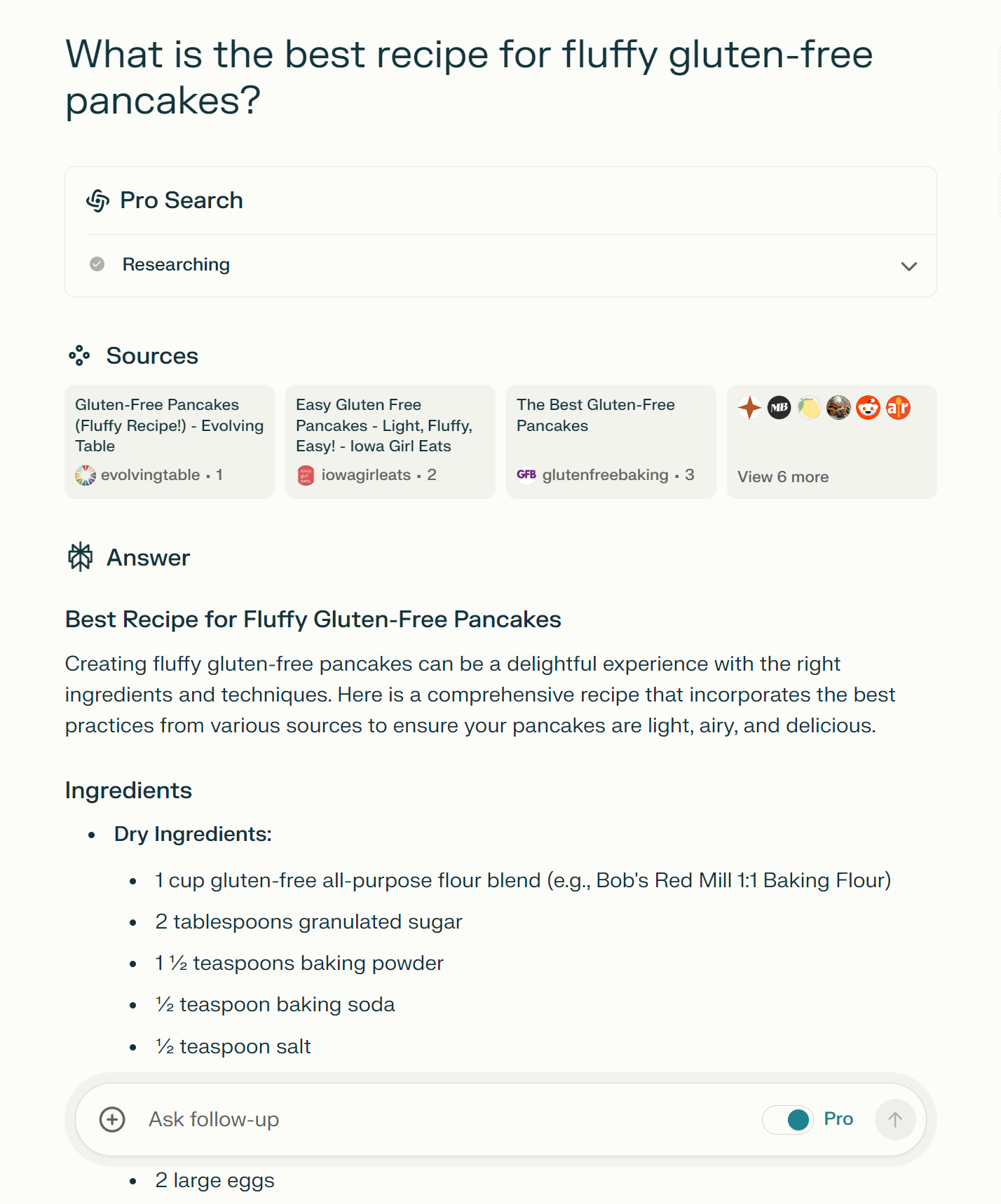
Source: Perplexity.ai Screenshot, Google Gemini Screenshot
Explore Latest Posts
Struggling with email marketing that generates opens and clicks but fails to deliver actual business results? The gap between engagement ... read more
July 17, 2025
Language should never be a barrier to digital access. Yet for millions of users worldwide, multilingual websites often become labyrinths ... read more
July 16, 2025
Accessibility has evolved from a nice-to-have feature into a fundamental business requirement. Organizations that treat accessibility as an afterthought often ... read more
July 14, 2025
Essential Strategies for Entrepreneurs
Get Actionable Business Insights & Marketing Tips
Our newsletter delivers real-world strategies from entrepreneurs who’ve been exactly where you are.
Sign up now for:
- Actionable growth strategies that work
- Insider tactics for attracting top talent
- Real-world case studies from successful founders
- Emerging tech trends that drive innovation
- Pragmatic marketing approaches for visionary leaders
